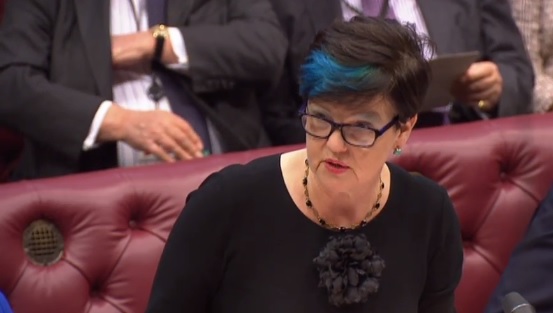
Energy minister Baroness Neville-Rolfe faced a series of questions on the government’s approach to solar and rising business rates during a question session in the House of Lords.
Baroness Neville-Rolfe has suggested the government is looking to level the playing field between public and private schools over the issue of solar business rates during a questions session in the House of Lords this morning.
The minister for energy and intellectual property claimed the regime, which will see business rates applied to schools without charitable status while private schools and academies remain exempt, was a “curiosity” of the system.
Lynne Featherstone, who raised the issue in the Lords, called it an “unfair and unjust anomaly”, creating “a two-tier system which penalises local authority schools” and would be “devastating” to school and parish councils.
Meanwhile Green Party peer Jenny Jones challenged Neville-Rolfe to visit a school in Croydon with her to explain why their installation will now be taxed.
In response, the minister said: “In the past schools have been totally exempt. Now the rates system is coming in and biting in a way that maybe was not intended in the first place. We are looking seriously at the impacts against this backdrop of some doing better out of the system than others and I hope that we look forward to making some progress in this area.
“We are considering the impact of this and any proposed changes will be made in due course.”
Climate change charity 10:10 has claimed that under the current proposals, schools not exempt for the changes will see bills increase by more than £800 when the new rates are introduced in April 2017.
For state institutions with a 10kWp system, it estimates an added cost of £823.35 in business rates.
Opposition to the increase in business rates has grown steadily this year to reach the houses of Parliament. The issue has been raised repeatedly in the Commons during oral sessions with BEIS and DECC before it, while cross party support has been found for a motion to halt the proposed changes.
The Solar Trade Asssociation recently won a small concession from the Valuation Office Agency, which sets the rateable values used to calculated business rates, with installations used to export power to the grid to be spared from rising costs.
However schools, businesses and other commercial owners of solar that use installations for self-consumption remain at risk unless the government takes action to implement new legislation to block the changes.

